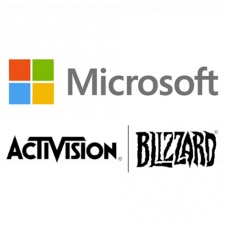In perhaps the most crushing blow yet to Microsoft’s attempts to acquire gaming giant Activision Blizzard, the UK’s Competition and Markets Authority (CMA) is blocking the deal due to its concerns regarding how it would affect the growing cloud gaming market. This decision comes in the wake of an in-depth review into the deal first announced in September 2022.
The deal, first announced last year, will be the biggest gaming acquisition in history should it be completed, however it has come under scrutiny from legislators worldwide, and fierce resistance from competitors in various spaces. Chief console competitor Sony has long lobbied against the deal due to its concerns about the future availability of the Call of Duty franchise, while in the mobile space Google has voiced its concerns regarding Microsoft’s plans to open its own mobile app store - potentially taking Activision Blizzard’s titles off Google Play as a result.
Although Microsoft has successfully convinced many regulators and competitors and seems to have dodged the louder concerns concerning the exclusivity of Call of Duty on consoles and Microsoft's intentions re their own mobile app store, it seems that it was the latent side-issue of the growing cloud gaming market that proved to be the deal's undoing.
Competition and growth
“Gaming is the UK’s largest entertainment sector,” said chair of the independent panel conducting the investigation Martin Coleman. “Cloud gaming is growing fast with the potential to change gaming by altering the way games are played, freeing people from the need to rely on expensive consoles and gaming PCs and giving them more choice over how and where they play games. This means that it is vital that we protect competition in this emerging and exciting market.
“Microsoft already enjoys a powerful position and head start over other competitors in cloud gaming and this deal would strengthen that advantage giving it the ability to undermine new and innovative competitors.”
The CMA reports that cloud gaming saw a 300% increase in monthly active users in the UK between the start of 2021 and the end of 2022, and is forecast to generate £11 billion globally and £1 billion in the UK by 2026. The group found that Microsoft accounts for 60-70% of global cloud gaming services thanks to a variety of products including Windows, Xbox, Xbox Cloud Gaming, and Azure, and that the deal would “reinforce Microsoft’s advantage in the market by giving it control over important gaming content such as Call of Duty, Overwatch, and World of Warcraft.
“The evidence available to the CMA indicates that, absent the merger, Activision would start providing games via cloud platforms in the foreseeable future.”
Crucially, the CMA notes that “allowing Microsoft to take such a strong position in the cloud gaming market just as it begins to grow rapidly would risk undermining the innovation that is crucial to the development of these opportunities.”
So close and yet so far
Microsoft submitted a proposal to address the CMA’s concerns, with the proposed remedy setting out “requirements governing what games must be offered by Microsoft to what platforms and on what conditions over a ten-year period”. However, the CMA found that these remedies were merely “behavioural”, and would require the company to behave in a way which could be “contrary to their commercial incentives.”
“Microsoft engaged constructively with us to try to address these issues and we are grateful for that, but their proposals were not effective to remedy our concerns and would have replaced competition with ineffective regulation in a new and dynamic market,” said Coleman.
The group found several shortcomings in the proposal, finding that it didn’t sufficiently cover different cloud gaming service business models, was not adequately open to providers seeking to offer games on other PC operating systems, and would standardise the terms and conditions on which games are available as opposed to them “being determined by the dynamism and creativity of competition in the market, as would be expected in the absence of the merger.”
As a result of these shortcomings, the CMA claims that “there are significant risks of disagreement and conflict between Microsoft and cloud gaming service providers, particularly over a ten-year period in a rapidly changing market.”
“Cloud gaming needs a free, competitive market to drive innovation and choice,” said Coleman. “That is best achieved by allowing the current competitive dynamics in cloud gaming to continue to do their job.
Although Microsoft has long maintained that the primary goal of the proposed merger is to strengthen its foothold in the mobile gaming market, the fact remains that console, PC, and cloud gaming also represent billions of dollars in revenue, and this number is only increasing thanks to new moves to bring some of the world’s most popular games to the attention of new consumers through high-profile adaptations. As such, despite Microsoft’s claims to the contrary, perhaps there is an element of veracity to the group’s concerns, and while the news will no doubt come as a disappointment to Microsoft and Activision Blizzard, it may prevent Microsoft gaining a monopoly in the booming cloud gaming market.
Microsoft has stated that it will appeal against the CMA’s decision.
We listed Activision Blizzard as one of the top 50 mobile game makers of 2022.





















